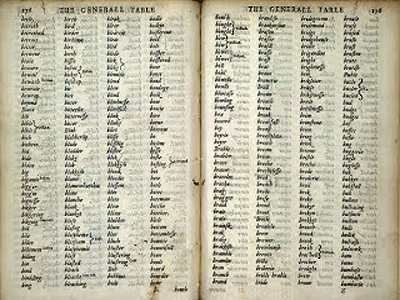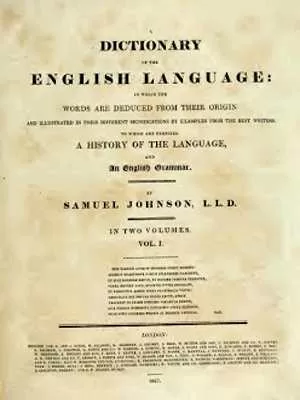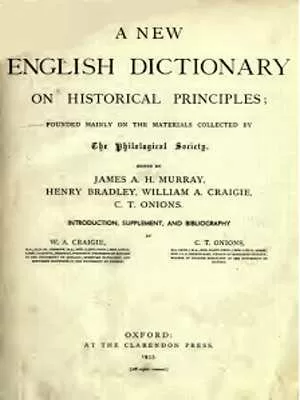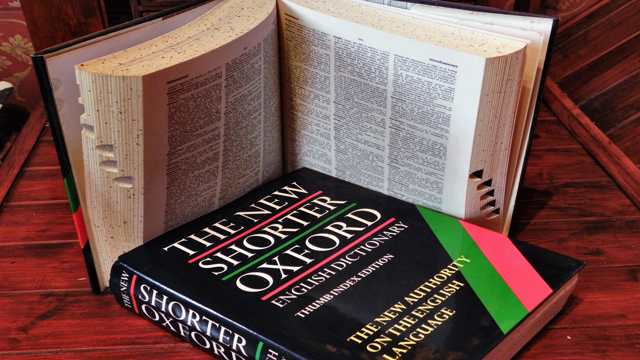Dictionaries are essential tools in our everyday lives, helping us understand the meaning, pronunciation, and usage of words. But how did these indispensable resources come to be? The journey of the dictionary, from simple word lists to the comprehensive Oxford English Dictionary (OED), is a fascinating tale of language standardization and scholarly dedication.
The Birth of Dictionaries: Solving a Spelling Crisis
Before the invention of dictionaries, the spelling of words was inconsistent, varying from one scribe to another. This lack of standardization became more problematic with the advent of printing, introduced to England by William Caxton in 1476. As printed materials became more widespread, the need for a standardized method of spelling became evident.

One amusing anecdote that illustrates the confusion of the time involves a merchant in Kent who asked for “eggs” but was misunderstood because the local term was “eyren.” This story, shared by Caxton, highlights the regional variations in language that plagued England. With such linguistic diversity, the development of a standard reference tool was inevitable.
Early Attempts: From Latin to English Glossaries
The earliest dictionaries were not what we think of today. They were bilingual word lists, primarily translating Latin to English and vice versa. One of the first known examples is the Catholicon Anglicum from 1483, which, despite its importance, still reflected the erratic spelling of the time (e.g., “thowsande” for “thousand”).
In 1538, Sir Thomas Elyot produced his Latin-English Dictionary, a step forward, but the real breakthrough came with monolingual dictionaries. Richard Mulcaster’s Elementarie (1582) was one of the first, although it was merely a list of words without definitions.
The First English Dictionary: A Modest Beginning

The first true English dictionary, Robert Cawdrey’s Table Alphabeticall (1604), contained 3,000 words with brief definitions. However, these definitions were often simplistic and unhelpful. For example, a “specke” was defined as a “spot, or marke,” and a “spectacle” as “something to be looked at.” While not particularly enlightening, Cawdrey’s work laid the groundwork for future lexicographers.
Samuel Johnson’s Landmark Dictionary
The most significant advancement in English dictionaries came with Dr. Samuel Johnson’s A Dictionary of the English Language in 1755. Johnson’s two-volume masterpiece listed 40,000 words and provided detailed definitions, many of which included quotes from literary works to demonstrate usage. Johnson’s personality shone through in his work, famously defining a lexicographer as a “harmless drudge.” His dictionary remained the authoritative English reference for over a century.
The Oxford English Dictionary: A Monumental Undertaking
By the mid-19th century, it was clear that a new, more comprehensive dictionary was needed. This led to the creation of the Oxford English Dictionary (OED). The goal was to compile a dictionary that included every English word, past and present, along with their meanings, pronunciation, and history. The project began in 1857, but it wasn’t until James Murray became the editor in 1879 that significant progress was made.

Murray and his team worked tirelessly, and the first fascicle of the OED was published in 1884. The full first edition, consisting of ten volumes, was completed in 1928. The OED was revolutionary, not only for its scope but for its inclusion of word etymologies and detailed historical usage.
The OED Today: Continuing the Legacy
The OED has continued to evolve, with supplements added over the years and a second edition published in 1989. The dictionary now spans 20 volumes, and work is ongoing for a third edition, expected in 2037. The OED remains the definitive authority on the English language, reflecting both its rich history and its ever-changing nature.
Conclusion
Dictionaries have come a long way from the simple word lists of the 15th century. They have evolved into complex, comprehensive works that not only provide definitions but also capture the history and evolution of language. The Oxford English Dictionary, in particular, stands as a monumental achievement in lexicography, embodying centuries of linguistic scholarship.

